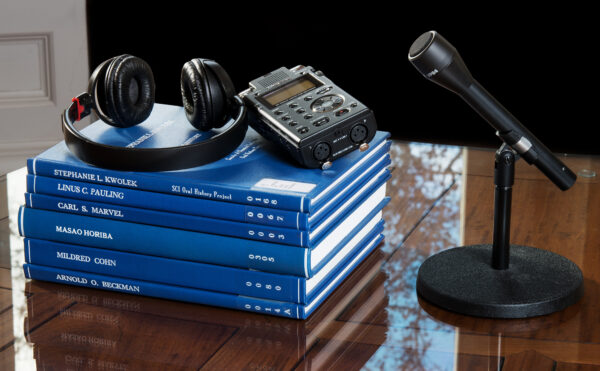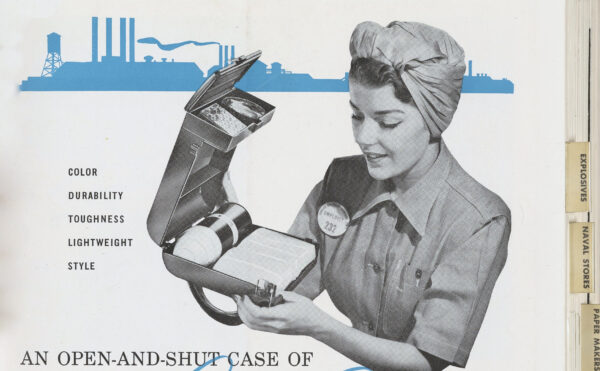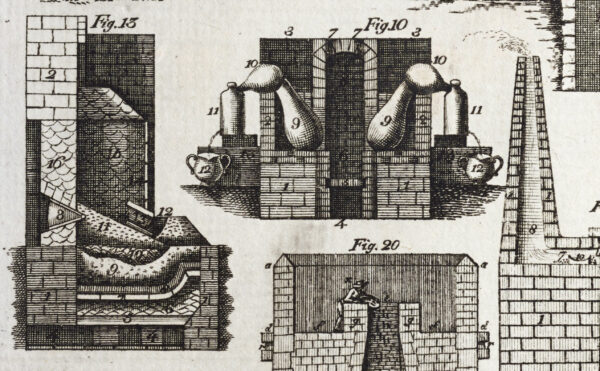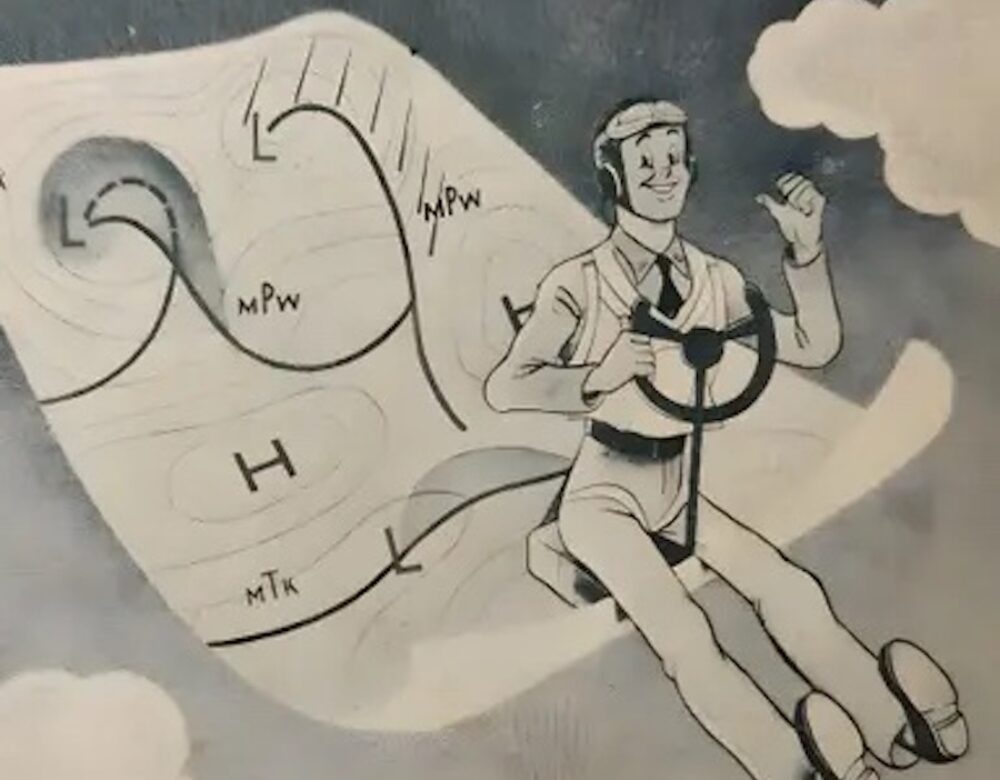
The Science History Institute has teamed up with online learning platform Roundtable to offer you compelling courses from the history of science. This online course features the Institute’s Roger Turner, curator of instruments and artifacts, who will explore TV weather programs and how a collision of strange events led to the look, sound, and feel of television meteorology as we know it today.
Course Overview
Aviation transformed our understanding of weather during the 20th century. Talking to pilots during World War II changed how meteorologists talk to the rest of us, especially once they learned how much pilots liked cartoons.
After World War II, thousands of newly trained weather officers tried to make careers in weather. Some invented the TV weather report, adapting the oral briefing and cartooning techniques they had used to break through the macho overconfidence of pilots. Television’s expansion in the 1950s created a commercial competition between male ex-military meteorologists, cartoonists of both genders, and young actresses and models.
While TV weathermen like Willard Scott and Tex Antoine made the weather report seem ridiculous, tens of millions of people tuned in, enabling them to take action when hurricanes or tornadoes threatened. And though credentialed scientists fretted about the changing public face of meteorology, viewers embraced new ways to learn about and be entertained by weather.
This is a live, virtual course hosted by Roundtable, which includes interactive opportunities and post-course recordings available for all course participants.
Cost
$22 for the course replay
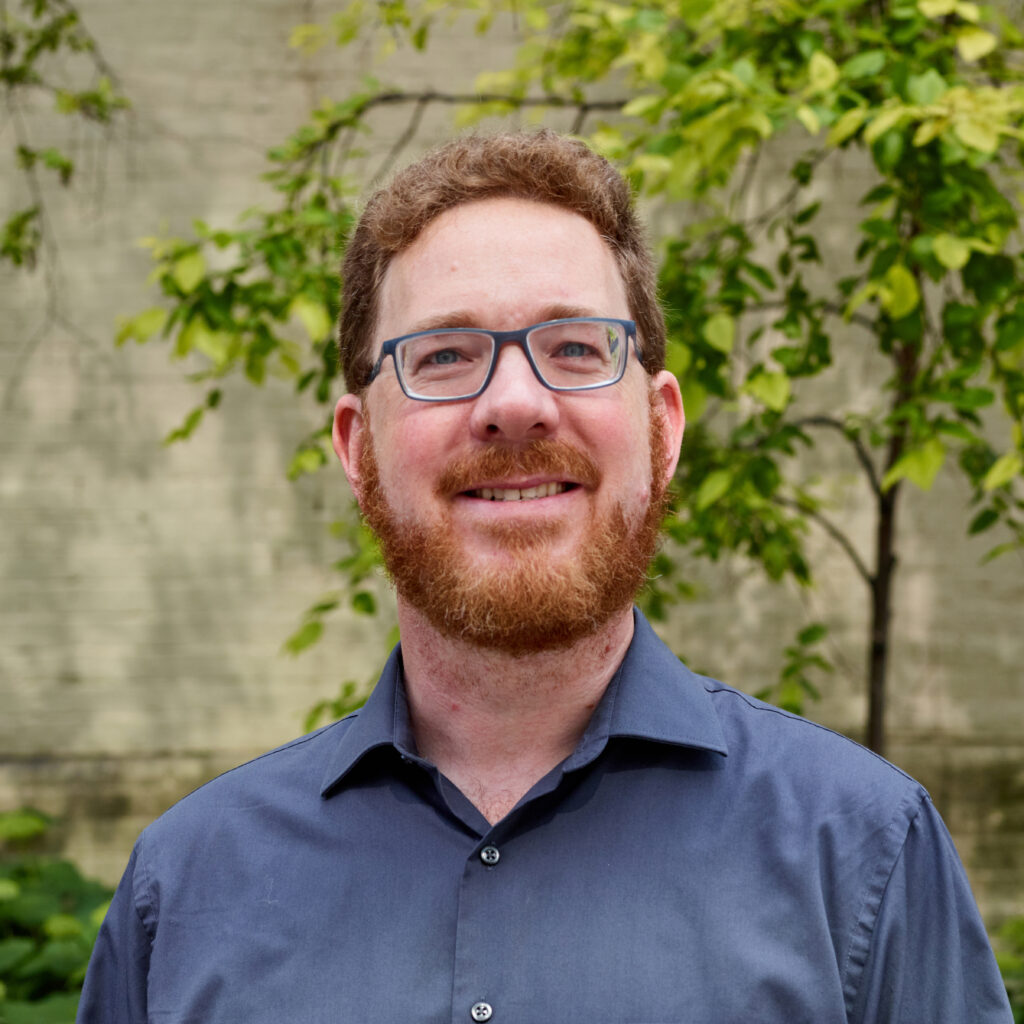
About Roger Turner
Roger Turner is a historian of science and museum curator. He studies how our daily lives are affected by the invisible work of nerds, especially in chemistry and environmental science. When he’s not helping visitors understand how a stylish mid-century modern gas chromatograph measured water pollution, he writes for Distillations magazine and produces digital exhibits. He holds a PhD in the history and sociology of science from the University of Pennsylvania.
About Roundtable
Roundtable by the 92nd Street Y, New York, is an online learning platform featuring live courses and Q&A sessions with some of the greatest minds of our time: world-renowned historians and scholars, Pulitzer Prize-winning writers, political pundits, and acclaimed food and wine experts, among others. All courses include interactive opportunities with instructors.
Featured image: “Flying the Weather Map,” U.S. Navy, 1943.
Courtesy Roger Turner
More events
Oral History Training Institute
This virtual training workshop introduces researchers to oral history and research interview methodologies.
Stories of Science: Last Bite of School Lunch
Join us in our museum EVERY SATURDAY for a family-friendly program that highlights strange and surprising stories from the history of science!
Alternative Power: Moving Beyond Wind and Solar with Geothermal Energy
Experts discuss the latest advances in geothermal energy, sharing details of its implementation on the Swarthmore College campus.

